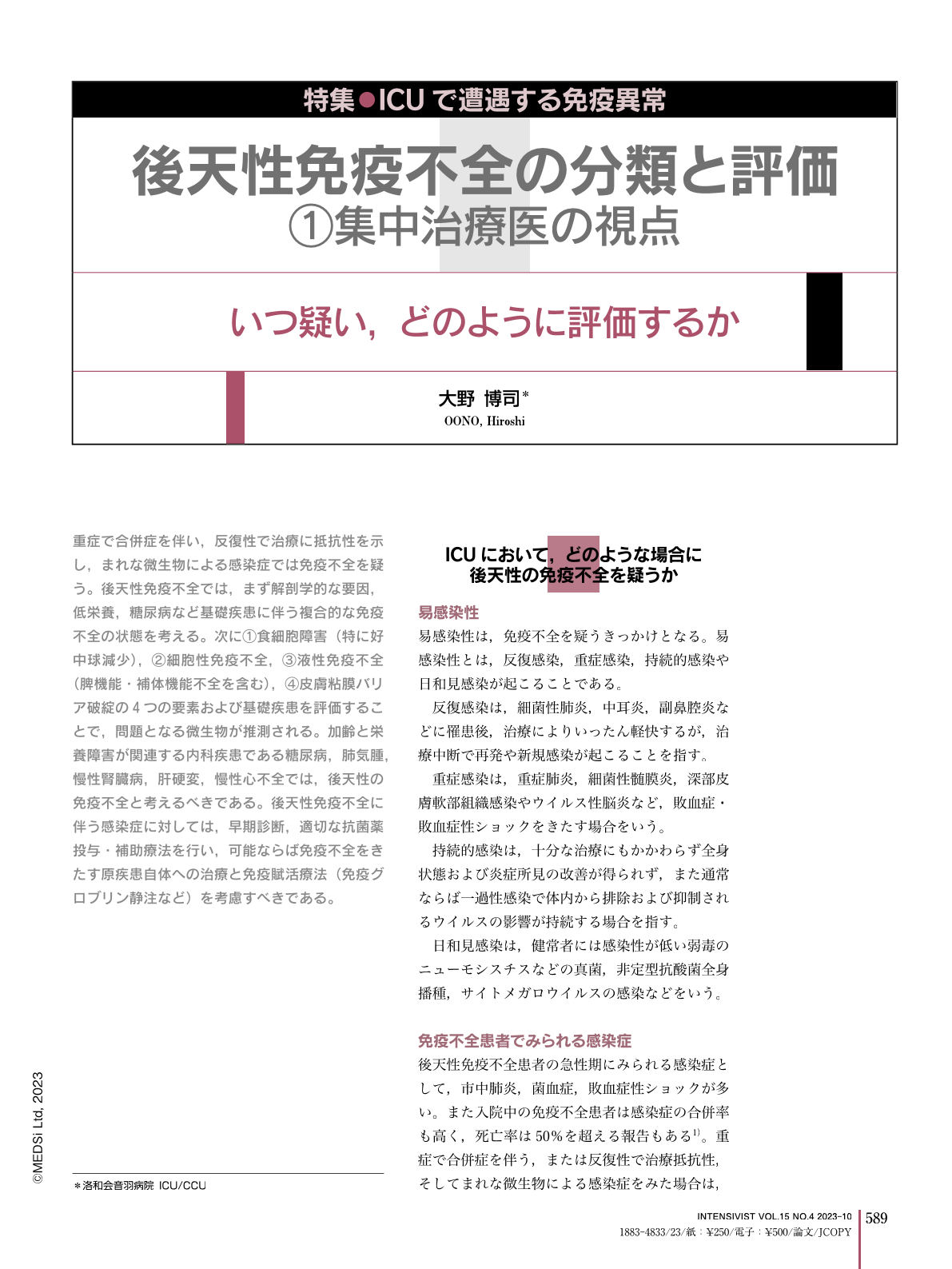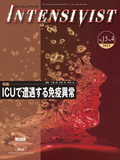Japanese
English
- 有料閲覧
- Abstract 文献概要
- 1ページ目 Look Inside
- 参考文献 Reference
重症で合併症を伴い,反復性で治療に抵抗性を示し,まれな微生物による感染症では免疫不全を疑う。後天性免疫不全では,まず解剖学的な要因,低栄養,糖尿病など基礎疾患に伴う複合的な免疫不全の状態を考える。次に①食細胞障害(特に好中球減少),②細胞性免疫不全,③液性免疫不全(脾機能・補体機能不全を含む),④皮膚粘膜バリア破綻の4つの要素および基礎疾患を評価することで,問題となる微生物が推測される。加齢と栄養障害が関連する内科疾患である糖尿病,肺気腫,慢性腎臓病,肝硬変,慢性心不全では,後天性の免疫不全と考えるべきである。後天性免疫不全に伴う感染症に対しては,早期診断,適切な抗菌薬投与・補助療法を行い,可能ならば免疫不全をきたす原疾患自体への治療と免疫賦活療法(免疫グロブリン静注など)を考慮すべきである。
Secondary immunodeficiency (SID) should be considered in a patients with infections characterized by increased frequency, need of parenteral antibiotics, unusual severity, difficult recovery, or uncommon etiological pathogens. SID is pathophysiologically classified as i) phagocytosis dysfunction, ii) cellular immunodeficiency, iii) humoral immunodeficiency, and iv) disruption of the skin and mucosal barriers. Chronic medical illnesses, such as diabetes mellitus, chronic obstructive pulmonary disease, chronic kidney disease, cirrhosis, and heart failure, are often associated with SID, that makes affected patients prone to specific life-threatening infections. The appropriate management of severe infection in these SID patients is i) an early diagnosis, ii) administration of appropriate antibiotics, iii) provision of general supportive care, and iv) immunomodulation therapy (if indicated).

Copyright © 2023, MEDICAL SCIENCES INTERNATIONAL, LTD. All rights reserved.


